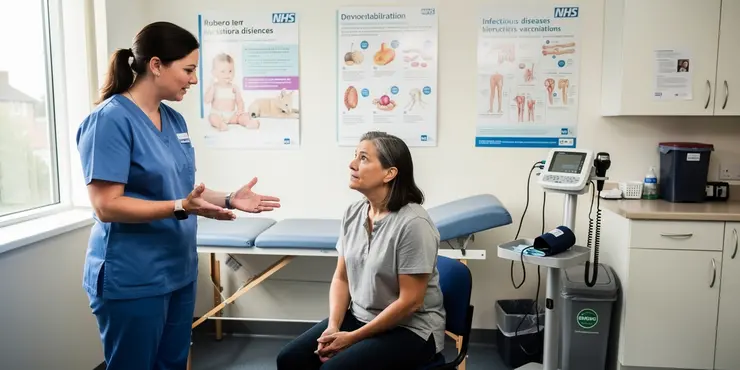
Find Help
More Items From Ergsy search
-
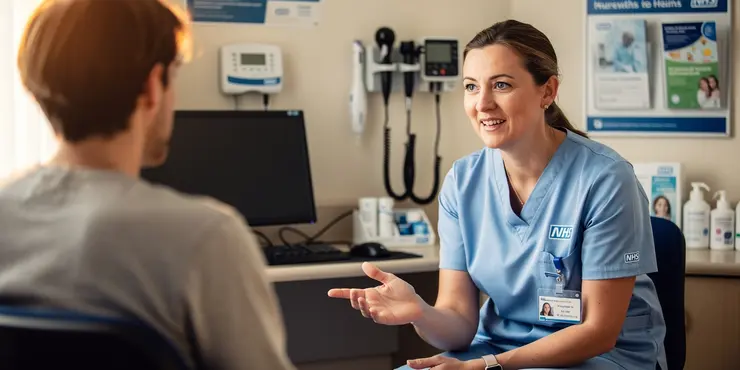
What is Rubella?
Relevance: 100%
-
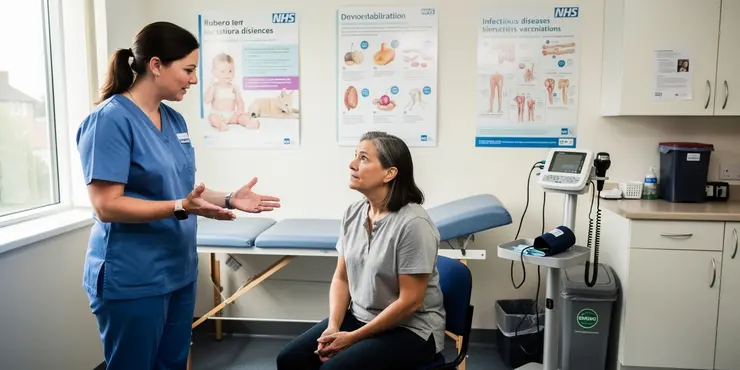
How serious is Rubella?
Relevance: 95%
-
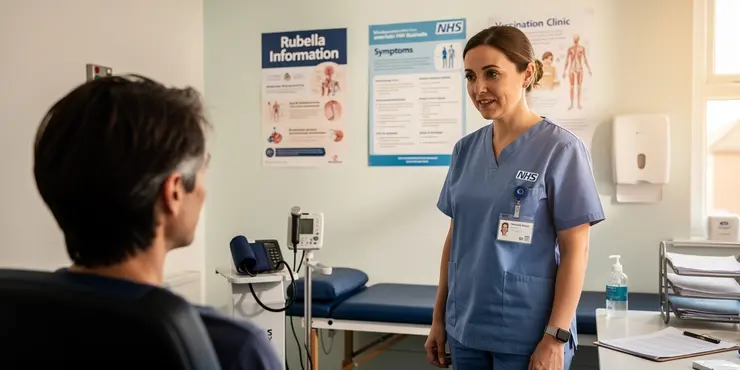
What are the symptoms of Rubella?
Relevance: 95%
-
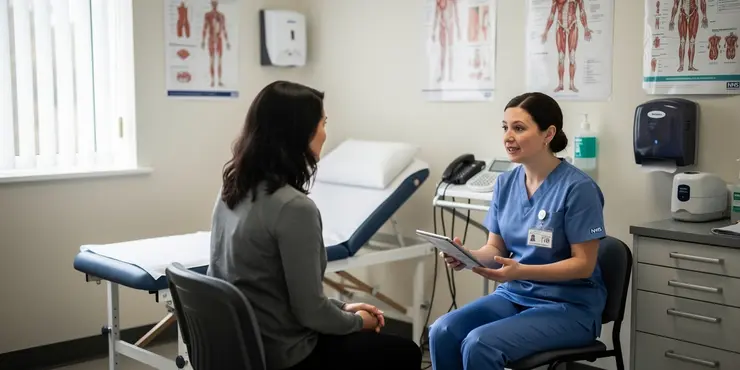
How is Rubella transmitted?
Relevance: 95%
-
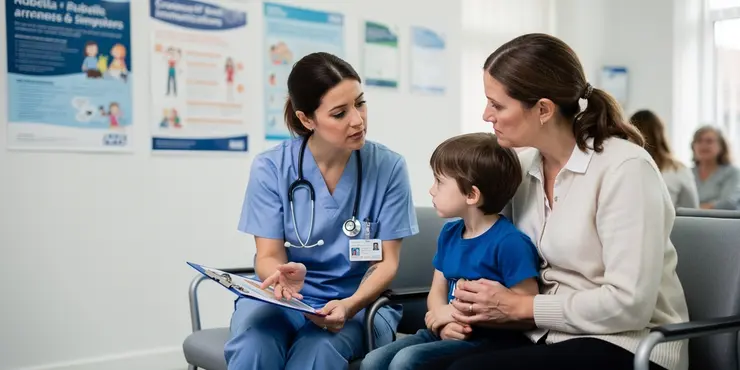
Is Rubella the same as measles?
Relevance: 95%
-
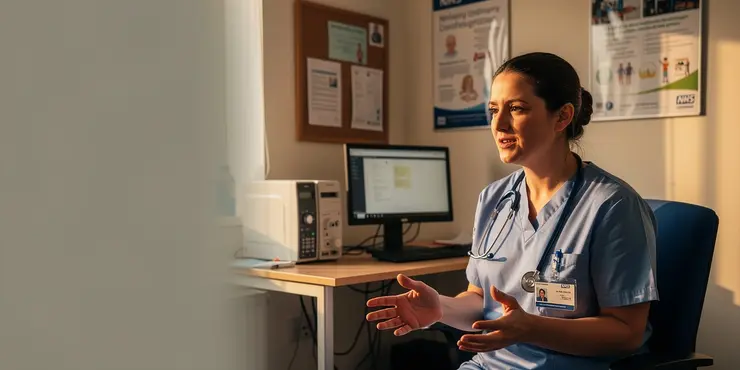
How is Rubella diagnosed?
Relevance: 94%
-
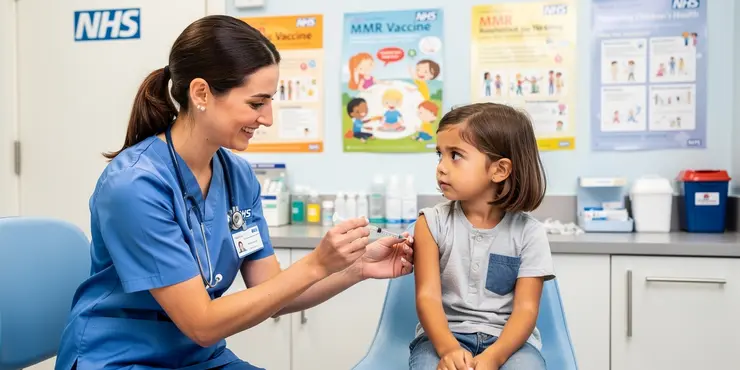
Can Rubella be prevented?
Relevance: 92%
-
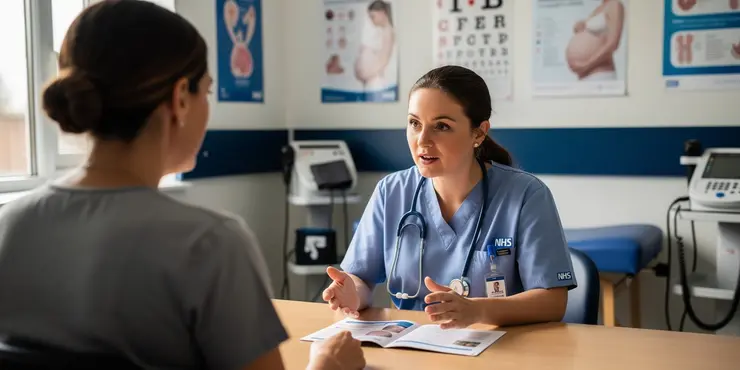
What is congenital rubella syndrome?
Relevance: 90%
-
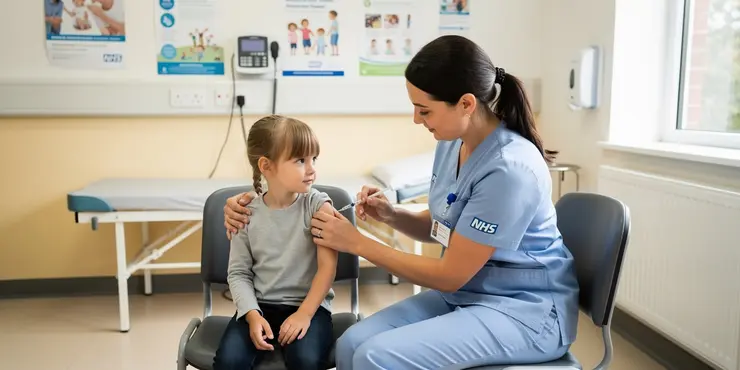
Who should receive the Rubella vaccine?
Relevance: 87%
-
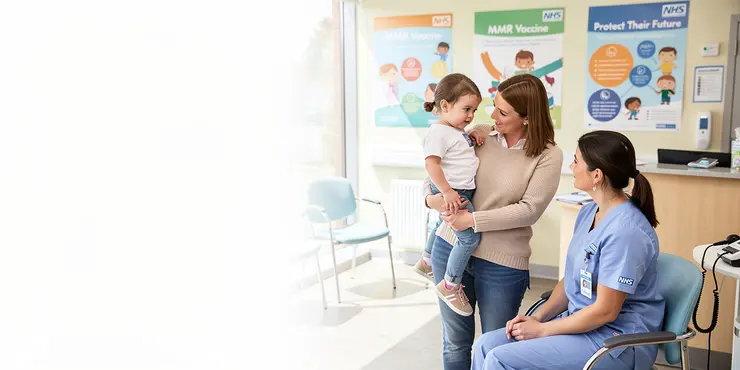
What is the MMR vaccine?
Relevance: 37%
-
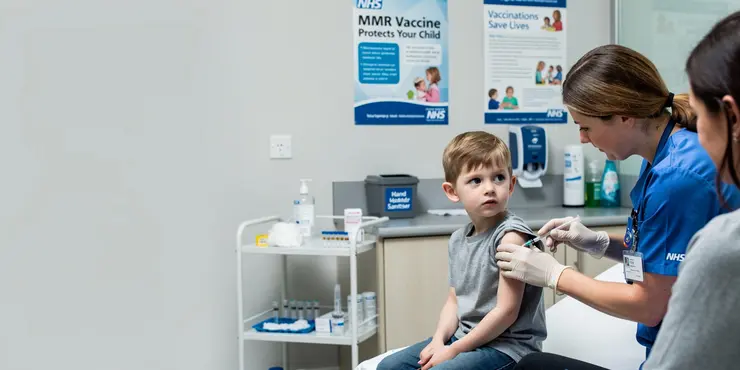
How effective is the MMR vaccine?
Relevance: 35%
-
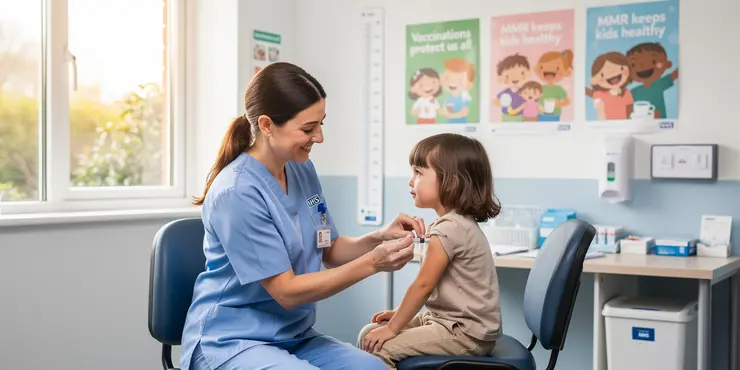
How effective is the MMR vaccine?
Relevance: 34%
-
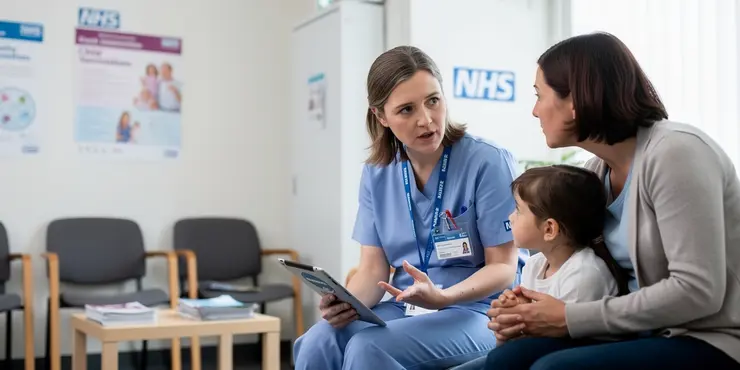
Who should receive the MMR vaccine?
Relevance: 30%
-
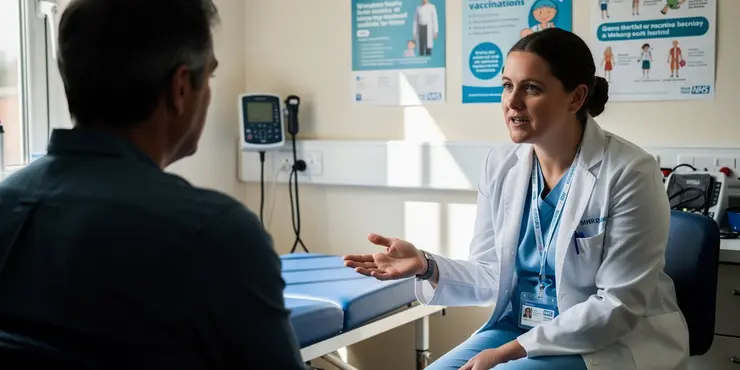
Can adults receive the MMR vaccine?
Relevance: 24%
-
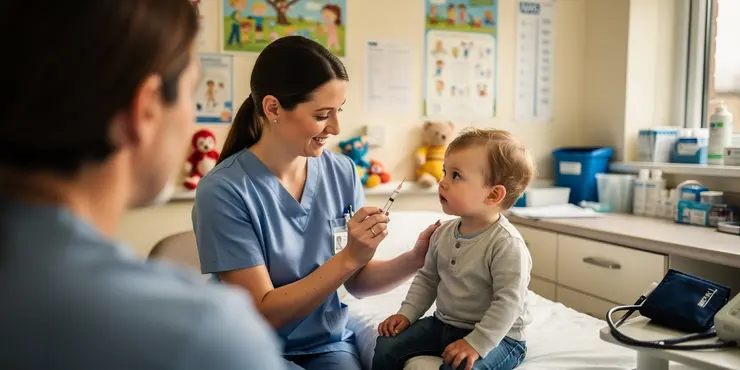
At what age is the MMR vaccine given in the UK?
Relevance: 23%
-
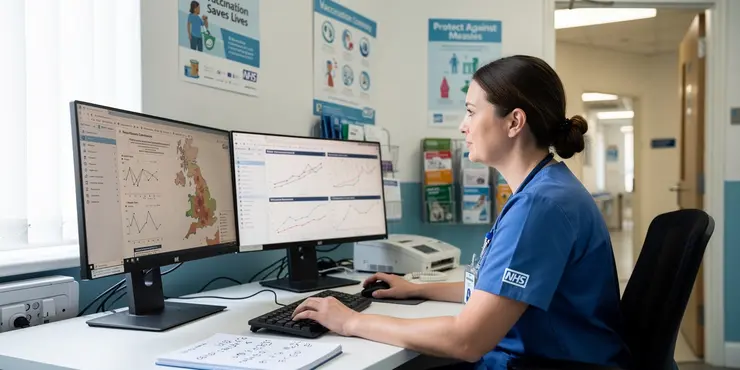
How does the UK monitor measles outbreaks?
Relevance: 23%
-
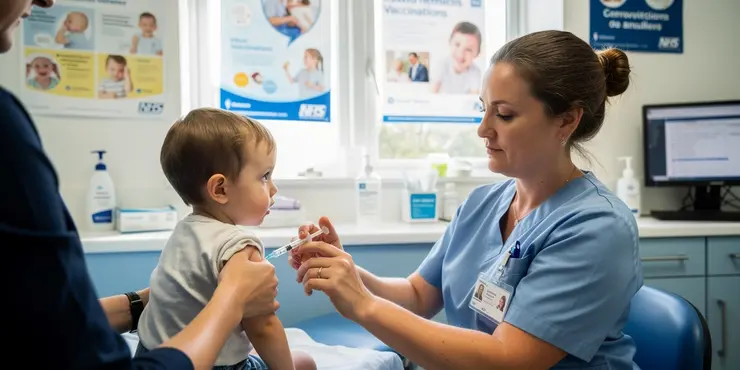
At what age should children receive the MMR vaccine?
Relevance: 22%
-
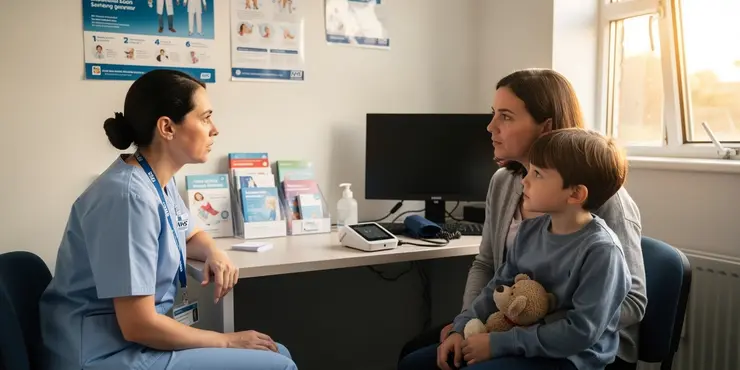
Are measles outbreaks common in the UK?
Relevance: 20%
-
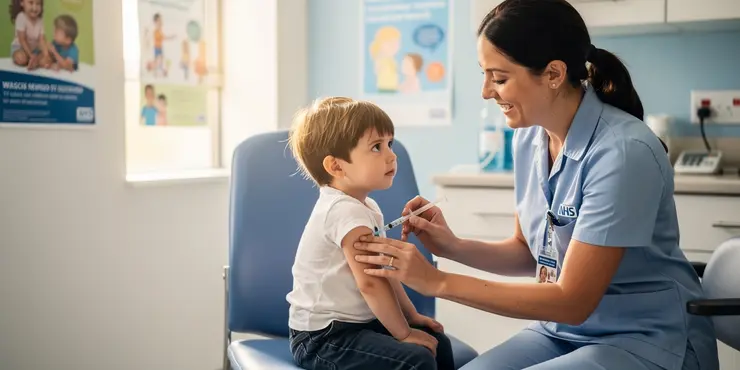
What is the current measles vaccination coverage in the UK?
Relevance: 20%
-
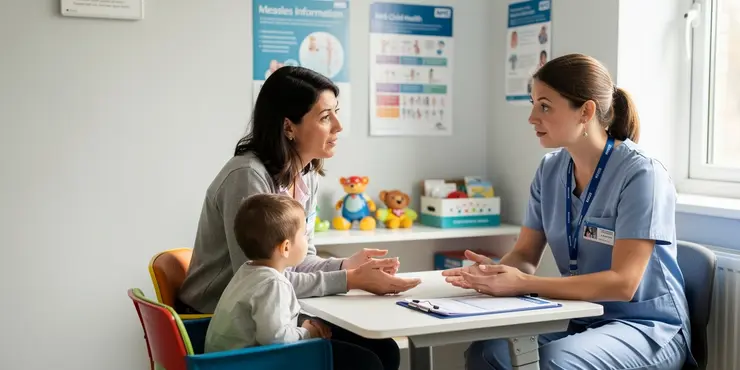
Is there a treatment for measles?
Relevance: 19%
-
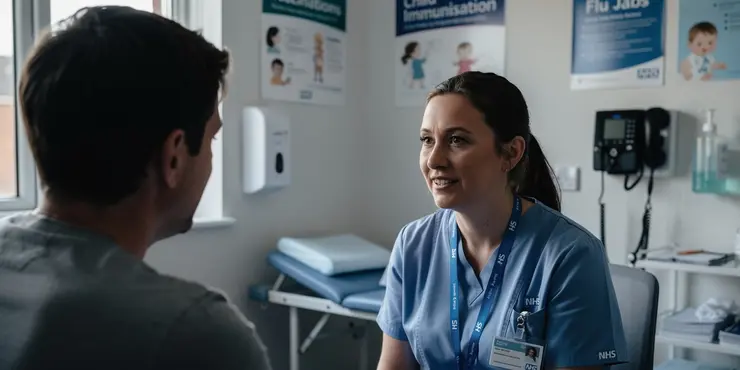
Why is measles less common in the UK?
Relevance: 19%
-
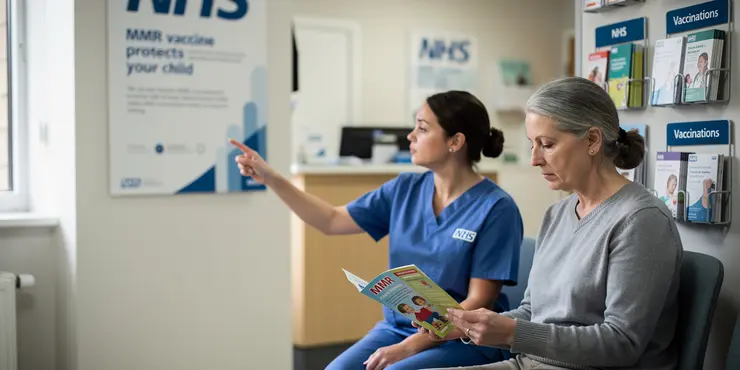
Are measles cases rising in the UK?
Relevance: 18%
-
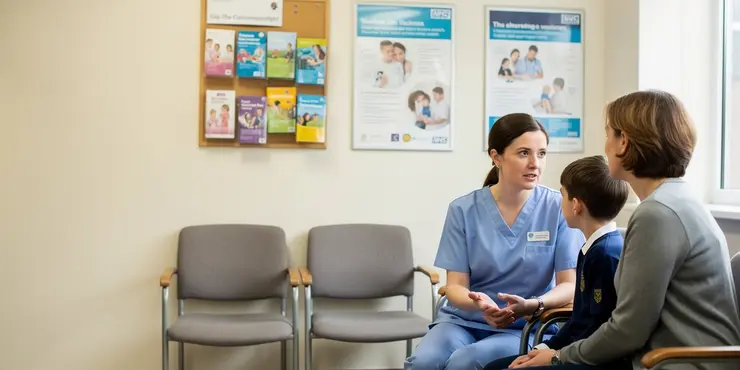
How can measles be prevented?
Relevance: 18%
-
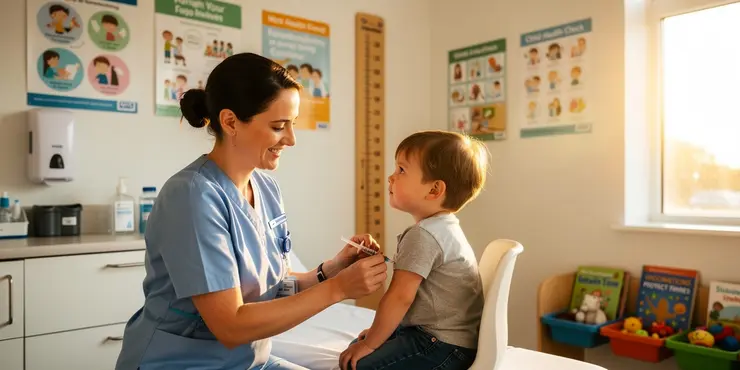
What is a live-attenuated vaccine?
Relevance: 18%
-
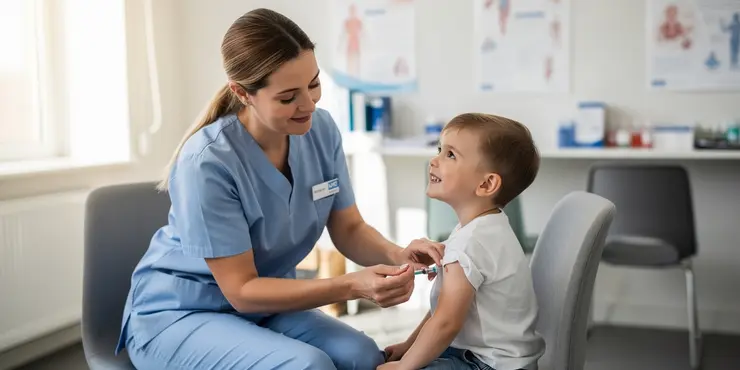
Children's Vaccination Schedule
Relevance: 17%
-
Is there a treatment for measles?
Relevance: 17%
-
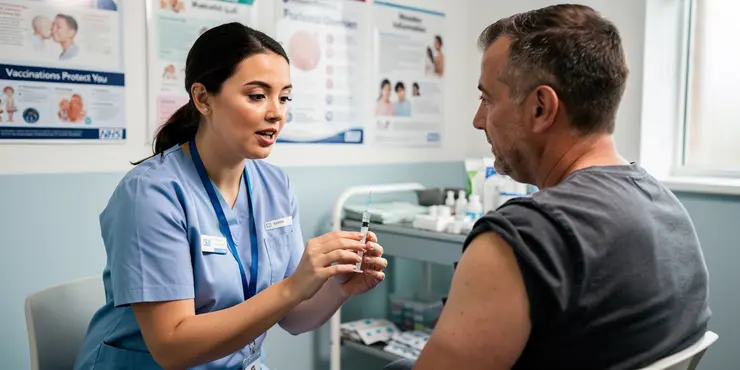
Can the measles vaccine be given to adults?
Relevance: 17%
-
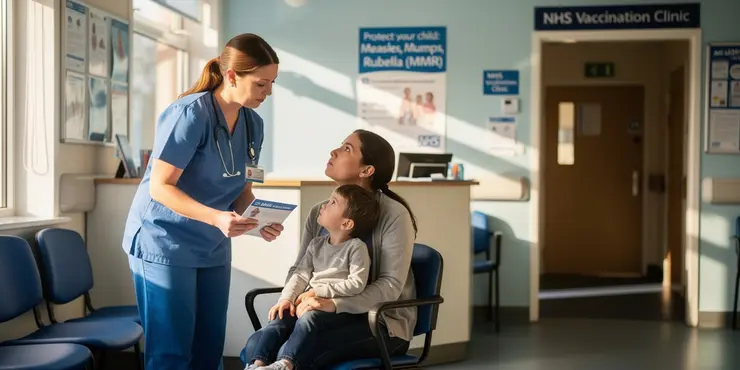
Are measles cases currently rising in the UK?
Relevance: 17%
-
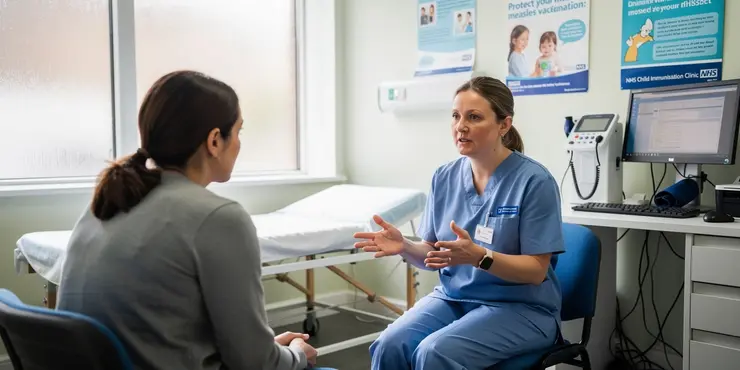
Can measles be serious?
Relevance: 17%
-
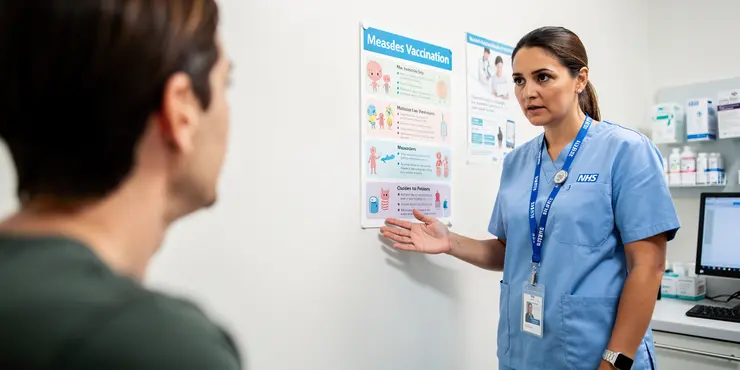
Are measles more common outside of the UK?
Relevance: 17%
-
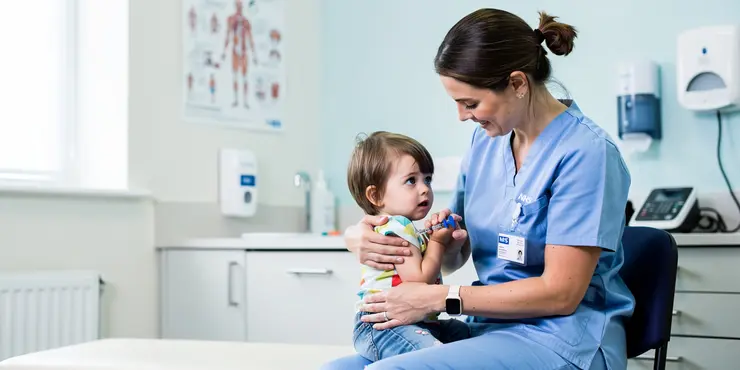
Can measles cause complications?
Relevance: 17%
-
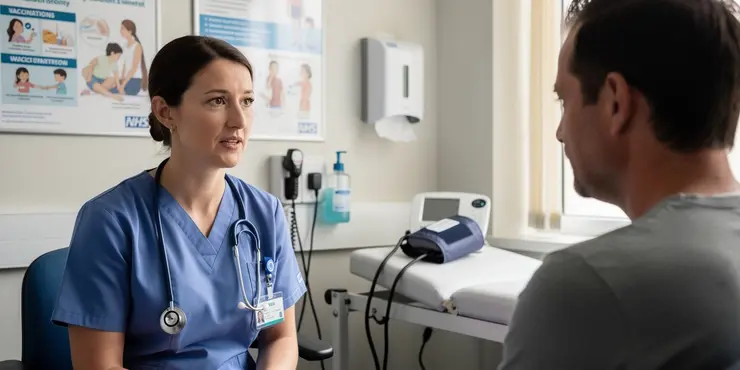
How is measles transmitted?
Relevance: 17%
-
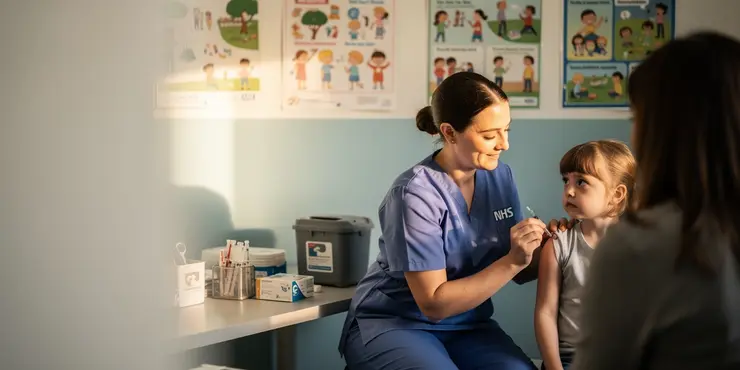
Measles
Relevance: 17%
-
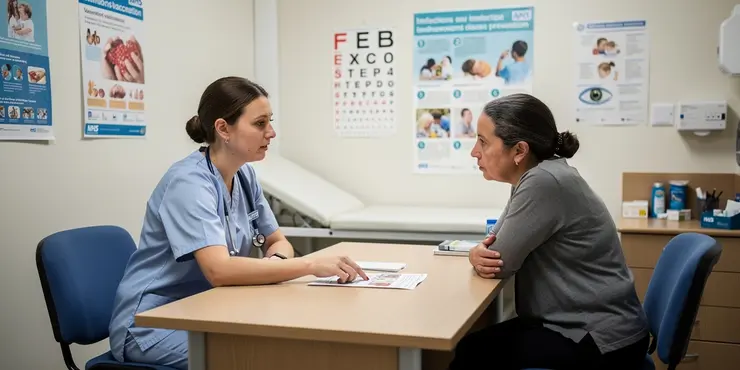
What should you do during a measles outbreak?
Relevance: 16%
-
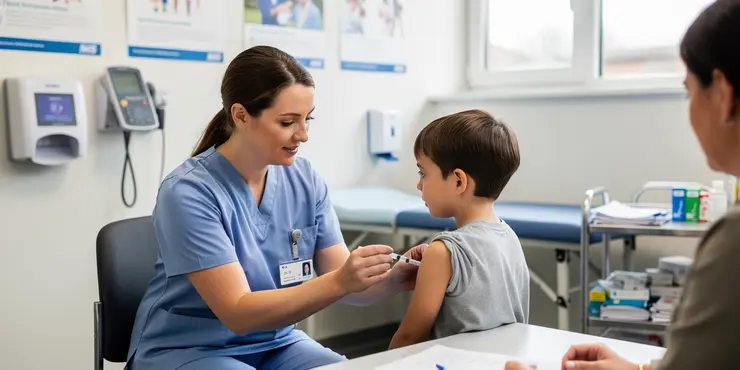
Can you get measles more than once?
Relevance: 16%
-
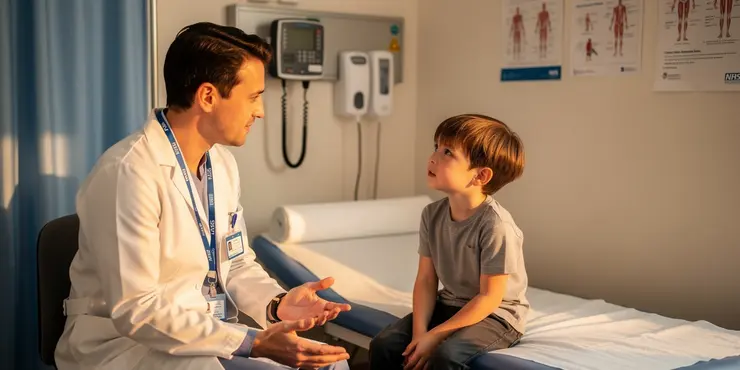
Why are measles outbreaks still occurring?
Relevance: 16%
-
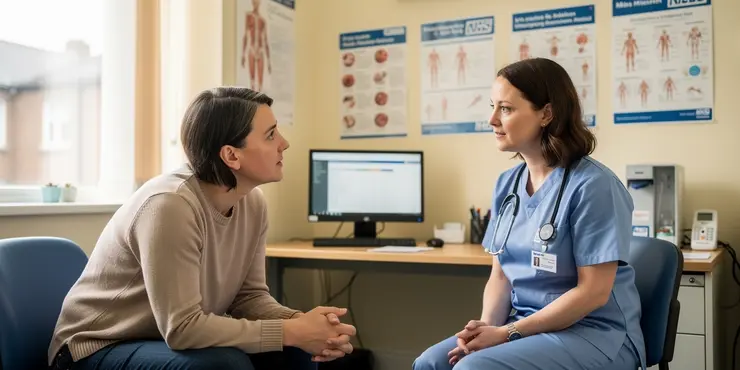
What should I do if I suspect I have measles?
Relevance: 16%
-
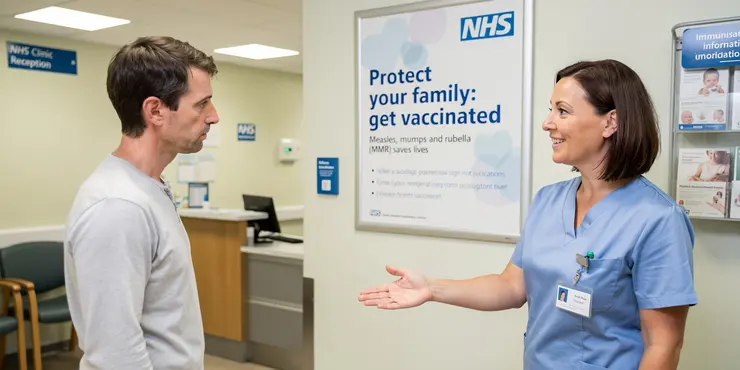
What is causing the rise in measles cases in the UK?
Relevance: 16%
-
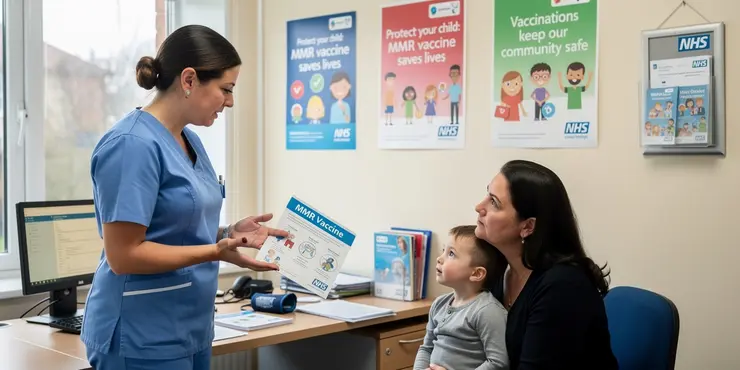
Why has the UK lost its measles elimination status?
Relevance: 16%
-
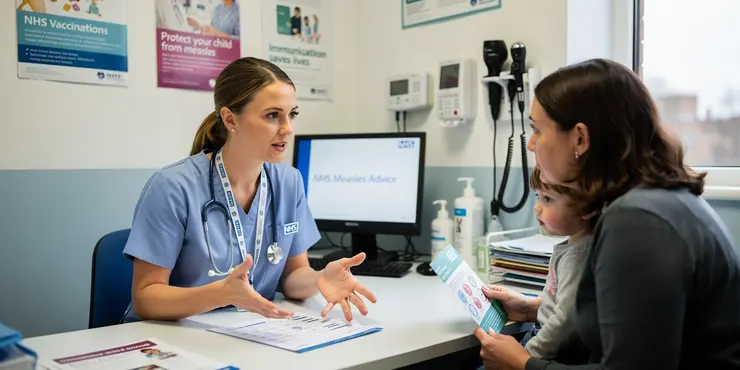
How is measles spread?
Relevance: 16%
Introduction to Rubella
Rubella, also known as German measles, is a contagious viral infection best known by its distinctive red rash. While rubella is generally a mild illness in children and adults, it can have serious consequences if contracted during pregnancy. This guide aims to provide an overview of how serious rubella is, particularly for a UK audience.
The Symptoms and Transmission of Rubella
Rubella is caused by the rubella virus and is spread through droplets in the air when an infected person coughs or sneezes. The symptoms of rubella are typically mild, especially in children, and may include a low-grade fever, sore throat, and the characteristic rash that starts on the face and spreads to the rest of the body. Some people may also experience swollen glands and aching joints. Symptoms can take 2-3 weeks to develop following exposure to the virus.
The Dangers of Rubella During Pregnancy
Rubella becomes particularly serious when a pregnant woman contracts the virus, especially during the first trimester. It can lead to miscarriage, stillbirth, or severe birth defects known as Congenital Rubella Syndrome (CRS). CRS can cause deafness, heart defects, intellectual disabilities, and liver or spleen damage. Therefore, preventing rubella infection in pregnant women is a public health priority.
Public Health and Vaccination
In the UK, rubella is effectively managed through the MMR (measles, mumps, and rubella) vaccine, which is offered to all children. The vaccine is highly effective, and widespread vaccination has led to a significant reduction in rubella cases. It is crucial for maintaining herd immunity and protecting those who cannot be vaccinated, such as pregnant women and immunocompromised individuals.
Current Situation in the UK
Thanks to the successful national vaccination program, rubella is now rare in the UK. However, it's important to maintain high vaccination coverage to prevent outbreaks, particularly because rubella remains prevalent in some parts of the world. Travel to areas where rubella virus is still circulating can pose a risk of reintroducing the virus into the UK populace.
Conclusion
While rubella is typically a mild disease, it poses serious risks during pregnancy, making vaccination extremely important. The MMR vaccine remains the best protection against rubella, and maintaining high vaccination rates in the UK is necessary to prevent its resurgence. Awareness and vigilance remain key in ensuring rubella stays rare, safeguarding public health and protecting the most vulnerable members of society.
Introduction to Rubella
Rubella is also called German measles. It is a virus that spreads easily and causes a red rash. Rubella is usually mild for children and adults but can be dangerous for pregnant women. This guide will tell you why rubella is serious for people in the UK.
The Symptoms and Spread of Rubella
Rubella is caused by a virus that spreads when an infected person coughs or sneezes. It is mild, especially for children. Symptoms may include a slight fever, sore throat, and a red rash that starts on the face and spreads. Some people may have swollen neck glands and sore joints. Symptoms usually appear 2-3 weeks after being around someone with the virus.
Why Rubella is Dangerous in Pregnancy
Rubella is very serious if a pregnant woman gets it, especially in the first three months. It can cause the baby to die before birth or be born with serious health problems. These problems are called Congenital Rubella Syndrome (CRS) and can include hearing problems, heart problems, learning difficulties, and problems with the liver or spleen. Keeping pregnant women from getting rubella is very important.
Health Protection and Vaccination
In the UK, rubella is controlled with the MMR vaccine. This vaccine stops measles, mumps, and rubella and is given to all children. The vaccine works very well and has reduced rubella cases a lot. It is important to protect everyone, especially those who can’t have the vaccine like pregnant women.
Rubella Today in the UK
Because of the vaccine, rubella is rare in the UK now. But we need to keep the vaccine numbers high to stop outbreaks. People traveling to places where rubella is common can bring it back to the UK, which is why vaccination is important.
Conclusion
Rubella is usually mild, but it is very dangerous for unborn babies. The MMR vaccine is the best way to stop rubella. High vaccination rates in the UK help keep rubella rare. Knowing about rubella and getting vaccinated keep everyone safe, especially those who need extra protection.
Frequently Asked Questions
What is Rubella?
Rubella, also known as German measles, is a contagious viral infection best known by its distinctive red rash.
How is Rubella transmitted?
Rubella is primarily spread from person to person through respiratory droplets when an infected person coughs or sneezes.
Who is at risk of contracting Rubella?
Anyone who is not vaccinated or has not previously had Rubella is at risk. Unvaccinated pregnant women are particularly at risk.
What are the symptoms of Rubella?
Symptoms include a red rash, fever, sore throat, and swollen lymph nodes. Some people may experience mild or no symptoms.
How serious is Rubella for children?
In children, Rubella is generally mild, causing symptoms like fever and rash. However, it can be more serious if not diagnosed early.
What are the complications of Rubella in adults?
In adults, Rubella can lead to more serious complications such as arthritis, encephalitis, or bleeding problems though these are rare.
Why is Rubella dangerous during pregnancy?
If a pregnant woman contracts Rubella, especially in the first trimester, it can result in serious birth defects known as congenital rubella syndrome.
What is congenital rubella syndrome (CRS)?
CRS can cause devastating birth defects including heart problems, developmental delays, and deafness if the mother contracts Rubella during pregnancy.
How long is someone with Rubella contagious?
People with Rubella are contagious from about 1 week before the rash appears to about 1 week after.
Is there a vaccine for Rubella?
Yes, the MMR (measles, mumps, and rubella) vaccine is highly effective at preventing Rubella.
Who should get the Rubella vaccine?
The MMR vaccine is recommended for all children, with the first dose given at 12-15 months and a second dose at 4-6 years.
Can Rubella be treated?
There is no specific treatment for Rubella, but symptoms can be managed with rest, fluids, and fever-reducing medications.
How can Rubella be prevented?
Vaccination is the most effective way to prevent Rubella. Good hygiene and avoiding contact with infected individuals also help.
Can vaccinated individuals still contract Rubella?
It is rare, but possible. The vaccine is about 97% effective with two doses, so breakthrough infections can occur.
Why is Rubella no longer common in some countries?
Widespread use of the Rubella vaccine has significantly reduced the incidence of the disease in many developed countries.
How is Rubella diagnosed?
Rubella is diagnosed based on clinical symptoms, medical history, and can be confirmed with a blood test to detect antibodies.
How long does it take to recover from Rubella?
Recovery from Rubella generally occurs within one to two weeks, with most symptoms resolving as the rash fades.
Is Rubella the same as measles?
No, while both diseases cause a rash, Rubella is caused by a different virus and tends to be milder than measles.
What should pregnant women do to avoid Rubella?
Pregnant women should ensure they are vaccinated before becoming pregnant and avoid contact with anyone who has the infection.
Can Rubella cause epidemics?
Rubella can cause outbreaks in communities with low vaccination rates, emphasizing the importance of herd immunity.
What is Rubella?
Rubella is a kind of sickness. Some people call it "German measles." It can make you feel like you have a cold and can give you a red rash.
Here are some things you can do to learn more and stay healthy:
- Ask a grown-up for help if you feel sick.
- Look at pictures of rubella rash to know what it looks like.
- Use simple books or videos to learn about rubella.
Rubella is also called German measles. It is a sickness that can spread from person to person. It is known for its special red spots on the skin.
How do people catch Rubella?
Rubella is a sickness you can catch from other people. Here’s how it spreads:
- Coughs and Sneezes: When someone with Rubella coughs or sneezes, tiny droplets come out of their mouth and nose. You can breathe in these droplets and get sick too.
- Touching: If you touch something with the droplets on it, like a toy or a door handle, and then touch your mouth or nose, you might catch Rubella.
Here are some ways to stay safe:
- Wash your hands often: Use soap and water to wash away germs.
- Cover coughs and sneezes: Use a tissue or your elbow, not your hands.
- Stay away from sick people: If someone is sick, try not to get too close.
Rubella spreads when someone who is sick coughs or sneezes. Tiny drops from their mouth or nose can make you sick too.
Who can catch Rubella?
Some people can get sick with Rubella. Here is who needs to be careful:
- Babies: If their moms had Rubella while pregnant.
- Kids and Adults: If they did not have a Rubella shot.
It helps to ask a doctor for advice and get a Rubella vaccine to stay safe.
People who have not had the Rubella shot or have not had Rubella before can get sick. It is especially important for pregnant women who have not had the Rubella shot to be careful.
What happens if you have Rubella?
If you have Rubella, you might feel sick. Here are some things that can happen:
- A red rash can appear. This often starts on your face.
- Your body might feel hot. This is called a fever.
- Your throat might hurt.
- Your eyes might look red.
- You could have a headache.
If you think you have Rubella, it's good to tell a grown-up or see a doctor. They can help you feel better.
Using pictures can help you understand better, and you can ask someone to read this to you if you need help.
You might see a red rash, feel hot (fever), have a sore throat, and feel lumps in your neck (swollen lymph nodes). Some people may not feel sick or only feel a little sick.
Is Rubella bad for kids?
Rubella, also called German measles, is a sickness. It can cause a mild rash and fever. But it can be very dangerous for babies in their mom’s tummy. Getting a vaccine can help keep kids safe from Rubella.
If you have questions, you can ask a doctor or nurse.
Looking at pictures or using videos can help you understand more.
Rubella is a sickness. It usually makes children feel a little sick. They might get a fever and a rash. But if Rubella is not found early, it can be more serious.
What problems can Rubella cause in adults?
Rubella is a sickness. Here are some problems it can cause in grown-ups: - **Joint pain**: Your body might hurt, especially in places like your hands and feet. - **Fever**: You might get hot and sweaty. - **Headache**: Your head might hurt. - **Eye problems**: Your eyes might get red or hurt. - **Swollen glands**: Parts of your neck or behind your ears might get bigger. If you feel any of these problems, tell someone and see a doctor. Using pictures or display boards can help you understand more about Rubella. Lots of breaks and asking questions if you don’t understand are also good ideas.In grown-ups, Rubella can sometimes cause more serious problems like sore joints, brain swelling, or trouble with bleeding, but this doesn't happen often.
Why is Rubella dangerous for pregnant women?
Rubella is a virus. It can harm a baby growing inside a pregnant woman.
If a pregnant woman gets rubella, it can cause problems for the baby. These problems can be serious.
Rubella can hurt the baby's eyes, ears, heart, and brain.
It's important for pregnant women to see a doctor and talk about rubella.
Tools like picture charts or videos can help explain rubella better.
If a pregnant woman gets Rubella, especially in the first three months of being pregnant, it can cause serious problems for the baby. This is called congenital rubella syndrome.
What is congenital rubella syndrome (CRS)?
Congenital rubella syndrome (CRS) is when a baby gets sick because their mother had a virus called rubella when she was pregnant.
This can make the baby have problems with their eyes, ears, heart, or brain.
If you have questions, you can ask a doctor or a nurse for help.
If a mother gets sick with Rubella when she is going to have a baby, it can cause bad problems for the baby. These problems can include issues with the heart, delays in learning, and trouble hearing.
It can help to use pictures, simple charts, or listen to someone explain to understand better.
How long can someone with Rubella spread it to others?
People with rubella can spread it to others.
They can spread it 1 week before the rash shows up. They can also spread it 1 week after the rash goes away.
If you have rubella, stay away from others to stop it spreading.
To learn more, talk to a doctor or nurse.
Is there a vaccine for Rubella?
Yes, there is a vaccine for Rubella. A vaccine is a medicine that helps stop people from getting sick.
Here are some ways to understand better:
- Ask a grown-up to explain more.
- Use pictures or videos to learn.
- Talk to a doctor or nurse if you have questions.
Yes, the MMR vaccine works well to stop Rubella. MMR means measles, mumps, and rubella.
Who should get the Rubella vaccine?
You need the Rubella vaccine to stay healthy. Here are people who should get it:
- All kids should get the vaccine. They usually get it in two doses. First, when they are 1 year old. The second dose before they start school.
- Adults who haven't had the vaccine or the disease should get it too.
If you have questions, you can ask your doctor or nurse. They can help you. It is also good to have someone help you read and understand this information. You can use an app or a tool that reads out loud. This can be helpful when reading on your own is hard.
All kids should get the MMR shot. They get the first shot when they are 12 to 15 months old. They get the second shot when they are 4 to 6 years old.
Can Rubella be treated?
Rubella is also called German measles. If someone gets rubella, doctors can't make it go away with medicine. But the body's own strong defenses usually fight it off.
People can get a vaccine to help stop them from getting rubella. A vaccine is like a special shield inside your body.
If you feel sick, rest and drink lots of water.
If you need help reading, ask a friend, family member, or use a reading app. They can make it easier to understand.
There is no special medicine to cure Rubella. But you can feel better by resting, drinking lots of water, and taking medicine to help with fever.
How can we stop Rubella?
Rubella is an illness that makes you sick.
Here are some ways to stop it:
- Get the Rubella vaccine: This is a special medicine that helps prevent Rubella.
- Wash your hands often: This helps get rid of germs.
- Stay away from sick people: If someone has Rubella, don’t get too close to them.
If you have questions, ask a grown-up or a doctor for help.
Getting a vaccine is the best way to stop Rubella. It also helps to wash your hands often and stay away from people who are sick.
Can people who got the Rubella shot still get the disease?
It is not common, but it can happen. The vaccine works really well, about 97% of the time, if you get two shots. But sometimes people can still get sick.
Why Don't Many People Get Rubella Anymore in Some Countries?
Rubella is a sickness. It can make you feel unwell. But in some places, people don’t get it as much anymore. Here’s why:
- People get a special shot called a vaccine. It helps keep them safe from getting rubella.
- A lot of people get this vaccine. This means the sickness can’t spread easily.
- Doctors and health helpers work hard to give the vaccine to everyone.
If you want to learn more or need help, you can ask a grown-up or a teacher. They can use pictures, videos, or simple talks to help you understand better.
Using the Rubella shot has really helped to stop people from getting the disease in many countries.
How do doctors find out if someone has Rubella?
Doctors can tell if you have rubella by looking at your symptoms and asking about your health in the past. To be sure, they can also do a blood test to find signs (called antibodies) that show you have rubella.
How long does it take to get better from Rubella?
Rubella is a sickness that makes you feel unwell. It is sometimes called "German Measles."
If you get Rubella, it usually takes about 3 to 5 days to start feeling better. Some people might take a little longer.
To feel better, get lots of rest and drink plenty of water. If you feel very unwell, ask an adult to take you to the doctor.
Tools to help understand better:
- Ask someone to read with you.
- Use pictures or videos to learn more about Rubella.
- Use a calendar to count the days until you feel better.
Getting better from Rubella usually takes 1 to 2 weeks. Most signs of being sick go away when the rash disappears.
Are Rubella and Measles the Same?
Rubella and measles are not the same. They are two different illnesses.
Both can cause a red rash and fever.
Rubella is sometimes called German measles, but it is different from measles.
If you need help to understand more, you can ask a friend or use picture books about illnesses.
No, Rubella and measles are not the same. Both can give you a rash, but they come from different viruses. Rubella is usually not as bad as measles.
How can pregnant women stay safe from Rubella?
If you are pregnant, it is important to stay healthy and keep away from Rubella (also called German measles). Here are some tips:
Talk to Your Doctor: Before you get pregnant, ask your doctor about a Rubella vaccine. Sometimes, this vaccine can help keep you safe.
Wash Your Hands: Always wash your hands with soap and water, especially if you are near other people. This helps to stop germs.
Avoid Sick People: Stay away from people who have a rash or feel sick. If they have Rubella, you could catch it.
Get Health Advice: Regularly visit your doctor for check-ups. They can give you good advice to keep you and your baby healthy.
Supportive Tools: You might find it helpful to use reminder apps to track your doctor visits or use videos for more information about Rubella.
Following these steps can help you and your baby stay safe.
If you are going to have a baby, get your shots before you become pregnant. Stay away from people who have the infection.
Can Rubella Spread to Lots of People?
Rubella is a sickness that can spread from one person to another. If many people get it at the same time, it is called an epidemic. To stay healthy and stop rubella from spreading: - Get the rubella shot, which helps protect you. - Wash your hands often to keep germs away. - Ask a grown-up or a doctor for more advice. If you have questions, talking to someone you trust can help you understand better.Rubella is a sickness that can spread to lots of people if not enough get the vaccine. It's important for everyone to get the vaccine so fewer people get sick.
Useful Links
This website offers general information and is not a substitute for professional advice.
Always seek guidance from qualified professionals.
If you have any medical concerns or need urgent help, contact a healthcare professional or emergency services immediately.
Some of this content was generated with AI assistance. We’ve done our best to keep it accurate, helpful, and human-friendly.
- Ergsy carfully checks the information in the videos we provide here.
- Videos shown by Youtube after a video has completed, have NOT been reviewed by ERGSY.
- To view, click the arrow in centre of video.
- Most of the videos you find here will have subtitles and/or closed captions available.
- You may need to turn these on, and choose your preferred language.
- Go to the video you'd like to watch.
- If closed captions (CC) are available, settings will be visible on the bottom right of the video player.
- To turn on Captions, click settings .
- To turn off Captions, click settings again.
More Items From Ergsy search
-

What is Rubella?
Relevance: 100%
-

How serious is Rubella?
Relevance: 95%
-

What are the symptoms of Rubella?
Relevance: 95%
-

How is Rubella transmitted?
Relevance: 95%
-

Is Rubella the same as measles?
Relevance: 95%
-

How is Rubella diagnosed?
Relevance: 94%
-

Can Rubella be prevented?
Relevance: 92%
-

What is congenital rubella syndrome?
Relevance: 90%
-

Who should receive the Rubella vaccine?
Relevance: 87%
-

What is the MMR vaccine?
Relevance: 37%
-

How effective is the MMR vaccine?
Relevance: 35%
-

How effective is the MMR vaccine?
Relevance: 34%
-

Who should receive the MMR vaccine?
Relevance: 30%
-

Can adults receive the MMR vaccine?
Relevance: 24%
-

At what age is the MMR vaccine given in the UK?
Relevance: 23%
-

How does the UK monitor measles outbreaks?
Relevance: 23%
-

At what age should children receive the MMR vaccine?
Relevance: 22%
-

Are measles outbreaks common in the UK?
Relevance: 20%
-

What is the current measles vaccination coverage in the UK?
Relevance: 20%
-

Is there a treatment for measles?
Relevance: 19%
-

Why is measles less common in the UK?
Relevance: 19%
-

Are measles cases rising in the UK?
Relevance: 18%
-

How can measles be prevented?
Relevance: 18%
-

What is a live-attenuated vaccine?
Relevance: 18%
-

Children's Vaccination Schedule
Relevance: 17%
-
Is there a treatment for measles?
Relevance: 17%
-

Can the measles vaccine be given to adults?
Relevance: 17%
-

Are measles cases currently rising in the UK?
Relevance: 17%
-

Can measles be serious?
Relevance: 17%
-

Are measles more common outside of the UK?
Relevance: 17%
-

Can measles cause complications?
Relevance: 17%
-

How is measles transmitted?
Relevance: 17%
-

Measles
Relevance: 17%
-

What should you do during a measles outbreak?
Relevance: 16%
-

Can you get measles more than once?
Relevance: 16%
-

Why are measles outbreaks still occurring?
Relevance: 16%
-

What should I do if I suspect I have measles?
Relevance: 16%
-

What is causing the rise in measles cases in the UK?
Relevance: 16%
-

Why has the UK lost its measles elimination status?
Relevance: 16%
-

How is measles spread?
Relevance: 16%


